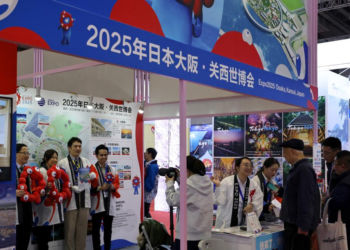Over the past 20 years, China has transitioned from relying on foreign technology to becoming a global leader in innovation, particularly in artificial intelligence (AI). Former WIPO Director General Francis Gurry noted in an interview with that China now leads the world in AI-related patent applications.
A WIPO report reveals that between 2014 and 2023, China accounted for over 70% of the 54,000 global patents related to generative AI, far surpassing the United States, which filed 6,276 patents. This dominance is largely attributed to China’s extensive investment in science and technology.
China’s dedication to AI research is evident in global metrics. It publishes the highest number of peer-reviewed science and technology articles and invests heavily in AI, second only to the U.S. Clarivate data shows China surpassed the U.S. and EU in high-impact scientific papers in 2022, and IDC forecasts China’s AI investment to exceed $40 billion by 2027, growing annually at 25.6%.
China’s robust intellectual property (IP) system further supports innovation across diverse sectors. Specialized IP courts in cities like Beijing, Shanghai, and Shenzhen have expedited patent dispute resolutions, fostering an environment conducive to innovation. Then, the 2024 World AI Legal Blue Book highlights China’s prominence in AI development, hosting 36% of the world’s large AI models.
AI in Industrial Applications
China’s AI advancements are driving industrial applications. The China Internet Development Report 2024 indicates AI integration across thousands of digital workshops and smart factories, with 421 achieving national recognition for intelligent manufacturing. According to the Ministry of Industry and Information Technology, China leads globally with 72 enterprises designated as lighthouse factories, representing 42% of the total.
Moreover, China is shifting from a manufacturing-based economy to one driven by technology and knowledge. This transition is reflected in its tech giants like Huawei, Tencent, and Alibaba, which leverage intellectual property to gain competitive advantages globally.
As the largest user of WIPO systems for trademarks, patents, and designs, China plays a pivotal role in the global IP landscape. The country has established IP cooperation with over 80 nations, implementing more than 200 agreements to date.
Additionally, in 2024, the AIPPI World Congress was held in Hangzhou for the first time, underscoring China’s growing influence in international IP discussions. Francis Gurry emphasized China’s efforts to balance global IP policies and harmonize patent systems, essential for fostering cross-border innovation and equitable development.
Related Posts
China unveils new classification system for “new trio” tech patents

















